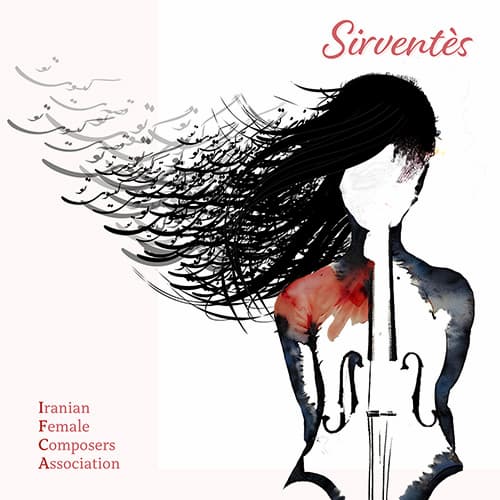Iranian composer Niloufar Iravani’s 2017 string quartet The Maze contains a wonderful analogy for how people listen to music. In its three movements, Energetic, Lyrical, and Mysterious, the work presents us with the various emotions in problem solving.

Niloufar Iravani
If we start with the title, The Maze, all kinds of references come to mind: from Greek mythology, the Minotaur is kept in a maze, with death as the prize for losing your way; it takes the cleverness of Ariadne to get Theseus his victory over the murderous Cretan bull. Or, on a more benign level, hedge mazes in European gardens, or corn mazes in harvest fields.

Laberinto de Villapresente, northern Cantabria, Spain, 2017
Movement I, Energetic, has all the cheerfulness and excitement we have when approaching a new project, in this case, a maze. Discoveries lie ahead but only if we think about what we’re doing to get there.
Niloufar Iravani: The Maze – I. Energetic (Callisto Quartet)
The second movement makes us face our doubts – have I been down this path before? Am I making the same mistake(s) I did before? The movement name is Lyrical and Iravani’s musical technique is one of echo – the thought and the question of the thought. Compositionally, the movement is based on three different octatonic scales.
Niloufar Iravani: The Maze – II. Lyrical (Callisto Quartet)
The last movement, Mysterious, pays homage to another mysterious work that seems lost, Charles Ives’ Unanswered Question. The movement is full of the stress of uncertainty: will a way out of the maze be found? Are we lost again?
Niloufar Iravani: The Maze – III. Mysterious (Callisto Quartet)
The movement closes with a sense of quiet resolution – a way is found, and a new future is opening.

Album cover: Sireventés
This work appears on a new album of works by the Iranian Female Composers Association (IFCA), which was formed in 2017 to support Iranian female composers around the globe. The music on the album Sireventés is personal and political, including works such as Mahdis Golzar Kashani’s And The Moses Drowned, reflecting on the immense number of children (an estimated 20%) who died in the war in Syria. We rarely hear modern classical music from West Asia, with so much of it being buried under the rhetoric of war or the sounds of traditional music. This piece, and the album as a whole, which includes works by six composers, is a revelation of sound.
For more of the best in classical music, sign up for our E-Newsletter


